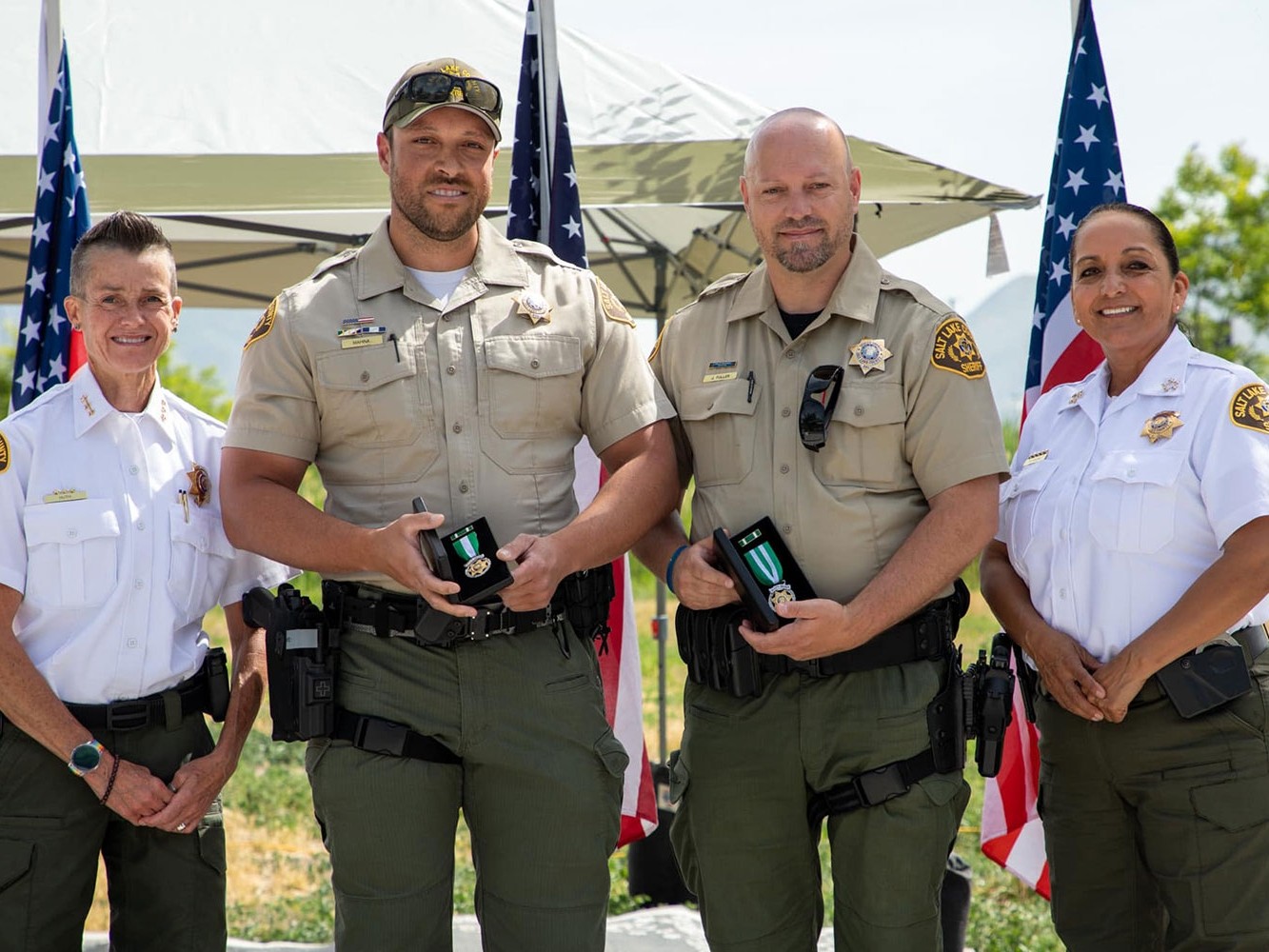As sheriffs, our mission is to protect and serve the residents of all 29 Utah counties by enforcing the law, preserving peace, and providing essential public safety services. We are dedicated to maintaining a safe environment where all individuals can live, work, and thrive.
Sheriffs offices provide a wide range of services designed to meet the needs of our communities, including:
- Law Enforcement: Patrol operations, criminal investigations, and traffic enforcement to maintain public order and safety.
- Search and Rescue Operations: Missions for missing persons, and coordinating efforts in wilderness and rural areas.
- Emergency Response: Rapid and effective response to emergencies, disasters, and critical incidents, coordinating with local, state, and federal agencies.
- Specialized Units: Management of elite teams like SWAT, K-9, narcotics, and cybercrime units to address complex and high-risk scenarios.
- Court Security: Safety of courthouses, including bailiff services and protection for judges, juries, and court personnel.
- Detention Services: Management and operation of county jails, ensuring the secure and humane treatment of inmates, with support their rehabilitation and reduce recidivism.
- Community Programs: Initiatives and outreach programs aimed at crime prevention, education, and community support, including school resource officers, neighborhood watch programs, and public safety workshops.
- 911 Centers: 911 Dispatchers are the critical link to first responders, providing essential communication and emergency medical dispatching.
- Constitutionally Protected: In November 2024, Utah voters approved Amendment C, a constitutional amendment ensuring that county sheriffs remain elected officials serving four-year terms.
Sheriffs hold a unique position within the law enforcement community, distinguished by their roles, responsibilities, and the manner in which they are elected. Unlike police chiefs or other law enforcement officers who are typically appointed by city officials, sheriffs are elected by the residents of their respective counties. This elected status makes them directly accountable to the public, reflecting the community's trust and confidence in their leadership.

